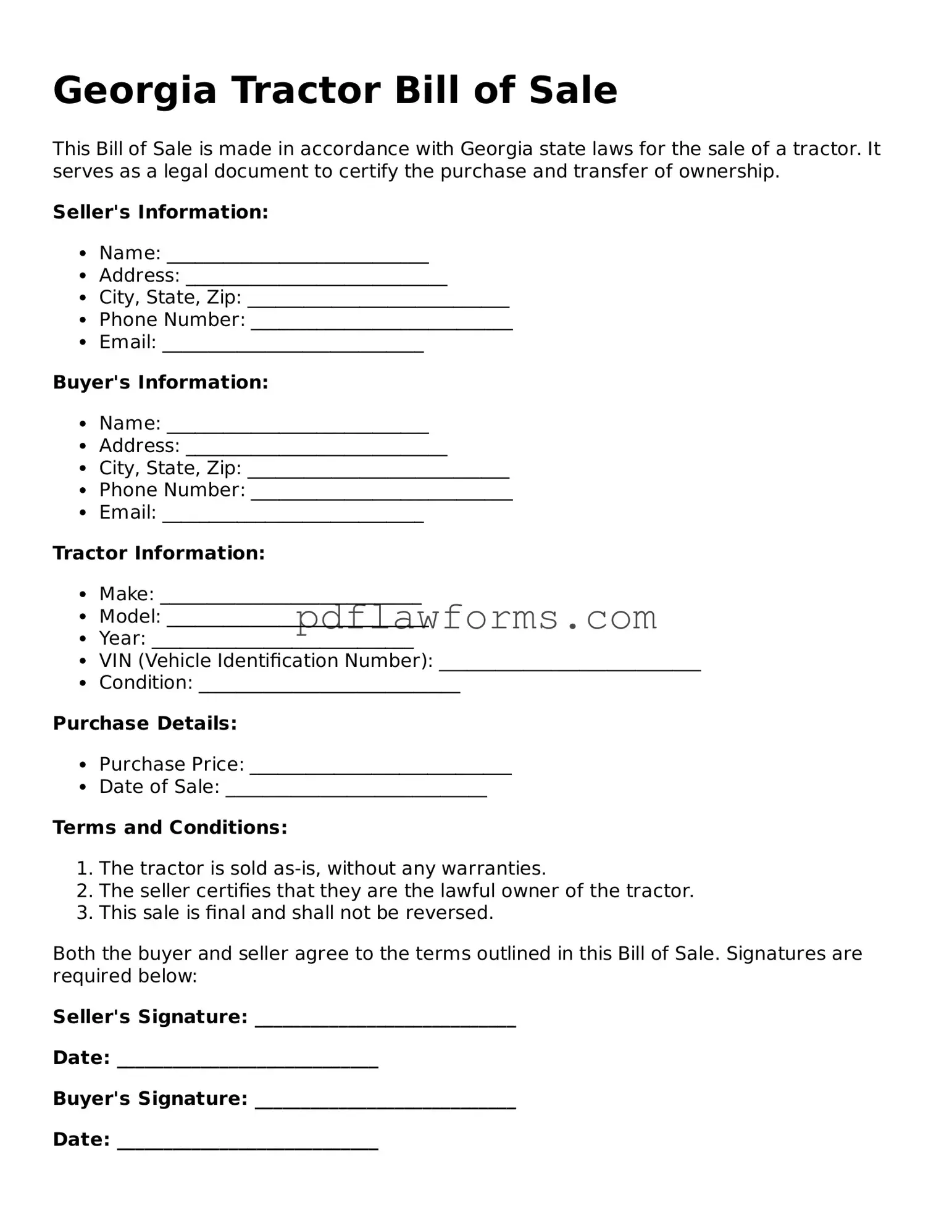Tractor Bill of Sale Form for the State of Georgia
The Georgia Tractor Bill of Sale form is a legal document used to record the sale and transfer of ownership of a tractor in the state of Georgia. This form protects both the buyer and seller by providing essential details about the transaction, including the purchase price and the condition of the tractor. Ensure your sale is documented correctly by filling out the form; click the button below to get started.
Make My Document Online

Tractor Bill of Sale Form for the State of Georgia
Make My Document Online
You’re halfway through — finish the form
Edit and complete Tractor Bill of Sale online, then download your file.
Make My Document Online
or
⇩ Tractor Bill of Sale PDF
